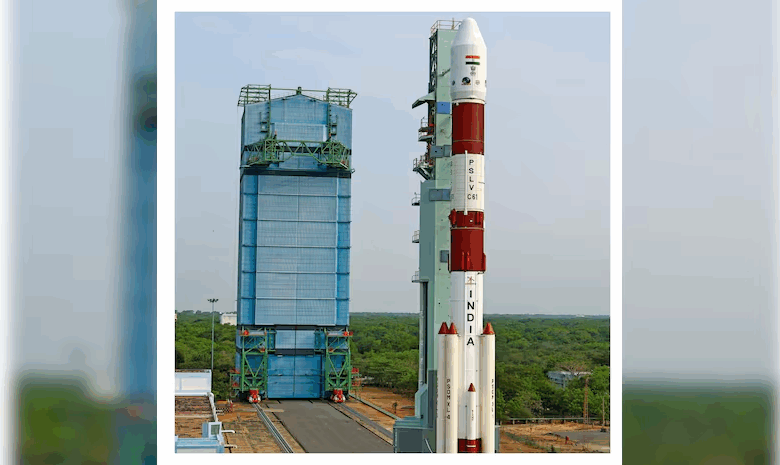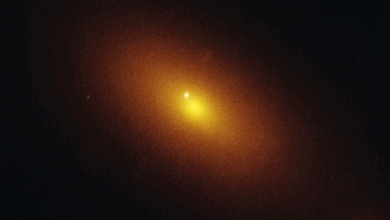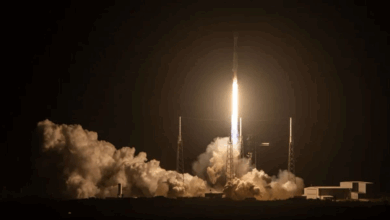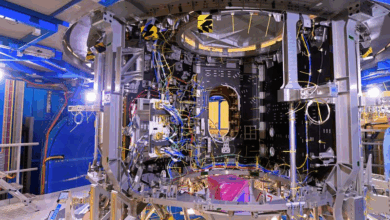Why did Isro’s PSLV-C61 mission fail after launching from Sriharikota?
News Mania Desk / Piyal Chatterjee /18th May 2025

The Indian Space Research Organisation (Isro) experienced a setback on Sunday when its reliable Polar Satellite Launch Vehicle (PSLV-C61) mission failed to place the EOS-09 satellite into its designated orbit after taking off from the Satish Dhawan Space Centre in Sriharikota.
The PSLV-C61, which signifies the 63rd mission of the PSLV series and the 27th in its XL setup, was assigned to launch the sophisticated Earth observation satellite EOS-09 into a sun-synchronous polar orbit. Nonetheless, the mission faced a significant anomaly during its flight, causing the satellite to miss its intended orbit.
Although ISRO has not yet published a comprehensive technical report, the head of the space agency, V Narayanan, acknowledged the matter during the livestream, indicating a problem with the third stage of the rocket, which utilized a solid motor system. This vital phase is tasked with advancing the payload nearer to its designated orbit following the initial acceleration stages.
“Today we targeted the 101st launch from Sriharikota, the PSLV-C61 EOS-09 mission. The PSLV is a four-stage vehicle and up to the second stage, the performance was normal. The third stage motor started perfectly but during the functioning of the third stage we are seeing an observation and the mission could not be accomplished,” Narayanan said after the unsuccessful launch.
Further explaining, he said, “…and the motor pressure–there was a fall in the chamber pressure of the motor case and the mission could not be accomplished. We are studying the entire performance, we shall come back at the earliest”.
Historically, there have been few failures in PSLV missions, with just a small number of occurrences since its launch in 1993. Earlier failures have frequently been associated with problems during stage separation or propulsion irregularities, like disturbances in attitude control or subpar performance of a specific stage.
During the inaugural flight in 1993, for instance, a programming mistake and a retro-rocket failure caused a loss of attitude control during the separation of the second and third stages, leading to mission failure.
Another significant failure in 2017 was attributed to the payload fairing not detaching, resulting in the satellite being stuck within the rocket. In the situation of PSLV-C61, such failures may arise from several causes, such as issues in the propulsion system, mistakes during stage separation, or glitches in the guidance and control systems.
The space agency has declared that a failure analysis team will comprehensively examine the telemetry and flight data to identify the precise cause and enact corrective actions. In spite of this issue, Isro’s PSLV is still among the globe’s most dependable launch vehicles, boasting a lengthy history of successful missions.






